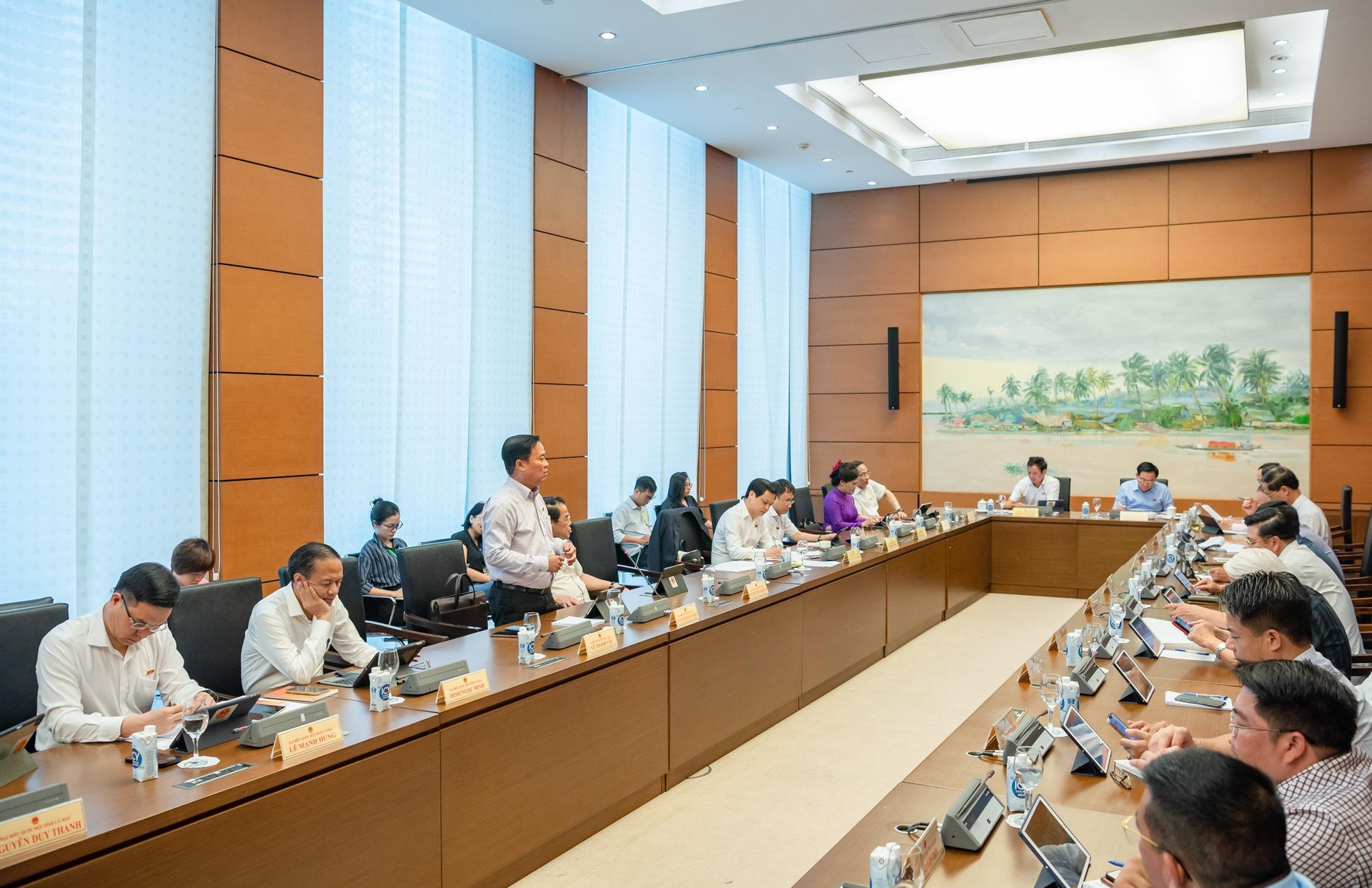
Group 4 includes National Assembly delegations from Ca Mau , Lai Chau, Thua Thien - Hue provinces and Hai Phong city.
At the discussion session, delegates agreed on the need to amend the Law on Water Resources. After more than 10 years of implementation, the 2012 Law on Water Resources has revealed limitations due to overlaps with other laws, leading to difficulties in implementation or waste of resources. At the same time, there is a lack of a legal framework for water security, especially the issue of ensuring water security for daily life; a lack of specific regulations related to the regulation and allocation of water resources, and close monitoring of water resource exploitation and use activities; the issue of artificial groundwater replenishment; the issue of urban flooding mitigation; the issue of fully valuing the value of water resources; some business conditions are no longer suitable; there are no transparent and clear mechanisms and policies to facilitate and encourage social resources of economic sectors and socio-political organizations under the responsibility of ministries, branches and localities; some new issues arise in practice but the law has no regulations to regulate them.
At the discussion session, National Assembly delegates raised the issue of how to ensure water security and safety when more than 60% of Vietnam's water resources depend on foreign countries? It is necessary to regulate a mechanism for managing "surface water".
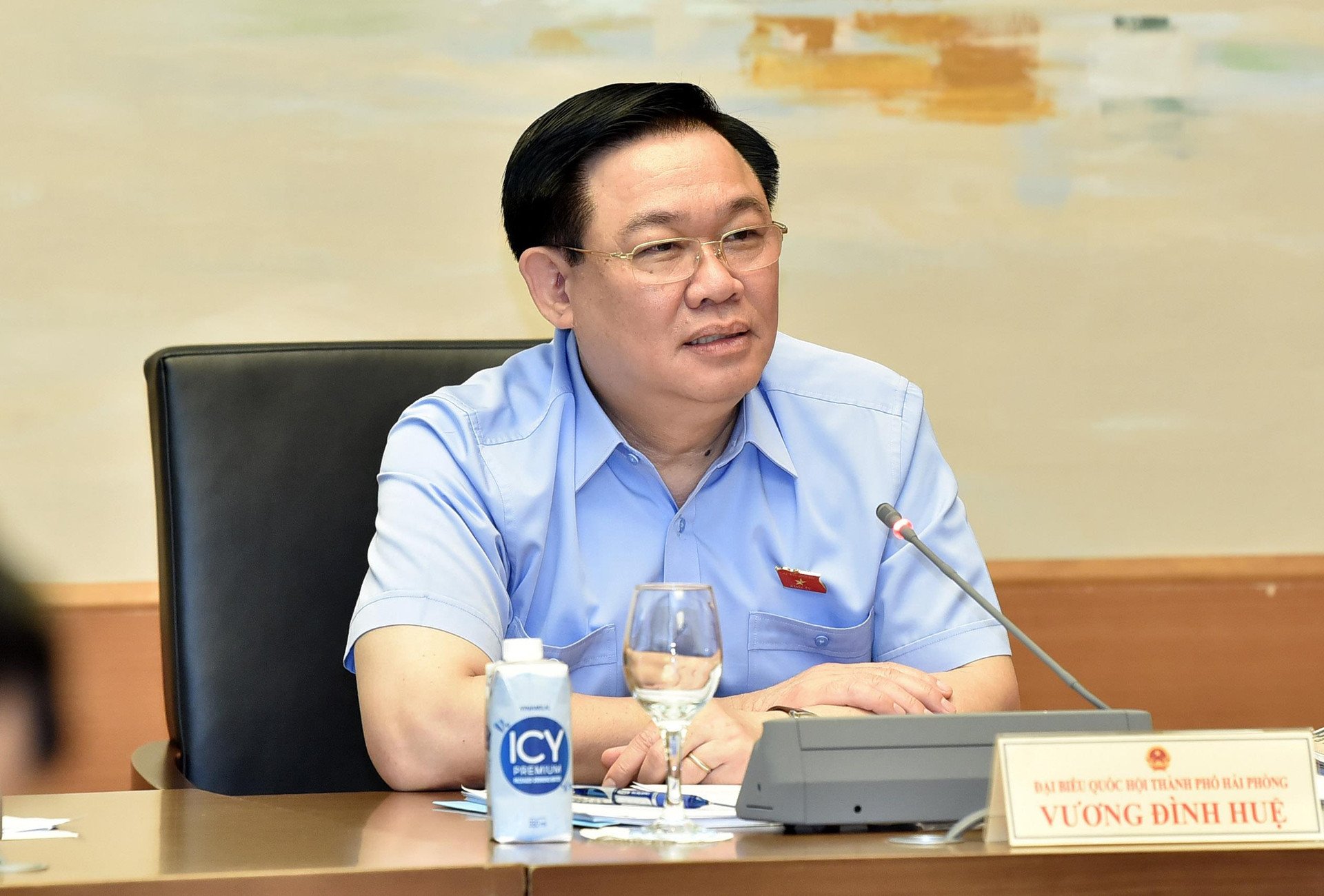
According to National Assembly Chairman Vuong Dinh Hue, research on regulations on water saving is very important, so it is necessary to consider groundwater, salt water, fresh water, brackish water, and even wastewater as resources. Therefore, the definition of water resources needs to be comprehensively taken into account to solve the problems posed by the circular economy.
National Assembly Chairman Vuong Dinh Hue emphasized the importance of "surface water" management, an issue that has not received due attention. From the lesson of Hanoi city, using 100% of clean water produced from surface water, while there is no monitoring system to monitor water source safety, so when there is a surface water pollution incident, it will greatly affect the security and safety of water sources.
The National Assembly Chairman said that the Law on Water Resources (amended) this time needs to adjust and supplement regulations on surface water management. Along with that, it is necessary to complete and supplement regulations on the issue of water-saving irrigation, because in Vietnam irrigation techniques are still very wasteful of water.
Need to unify state management mechanism on water resources
Emphasizing the issue of state management of water resources, especially the issue of international cooperation in water resources management such as the Mekong sub-region, National Assembly Chairman Vuong Dinh Hue said: Currently, legal regulations assigning management of the water resources sector are too scattered, causing complications in management.
The National Assembly Chairman stated: “In this draft Law, the functions and tasks for state management should be clearly defined. The Government shall manage in general, and the Ministry of Natural Resources and Environment shall be the focal point to assist the Government in state management of water resources and directly manage a number of other areas. The responsibilities of the ministries should be clearly defined in a more centralized direction, avoiding complications in management and it is necessary to build an inter-sectoral coordination mechanism for river basin management...”
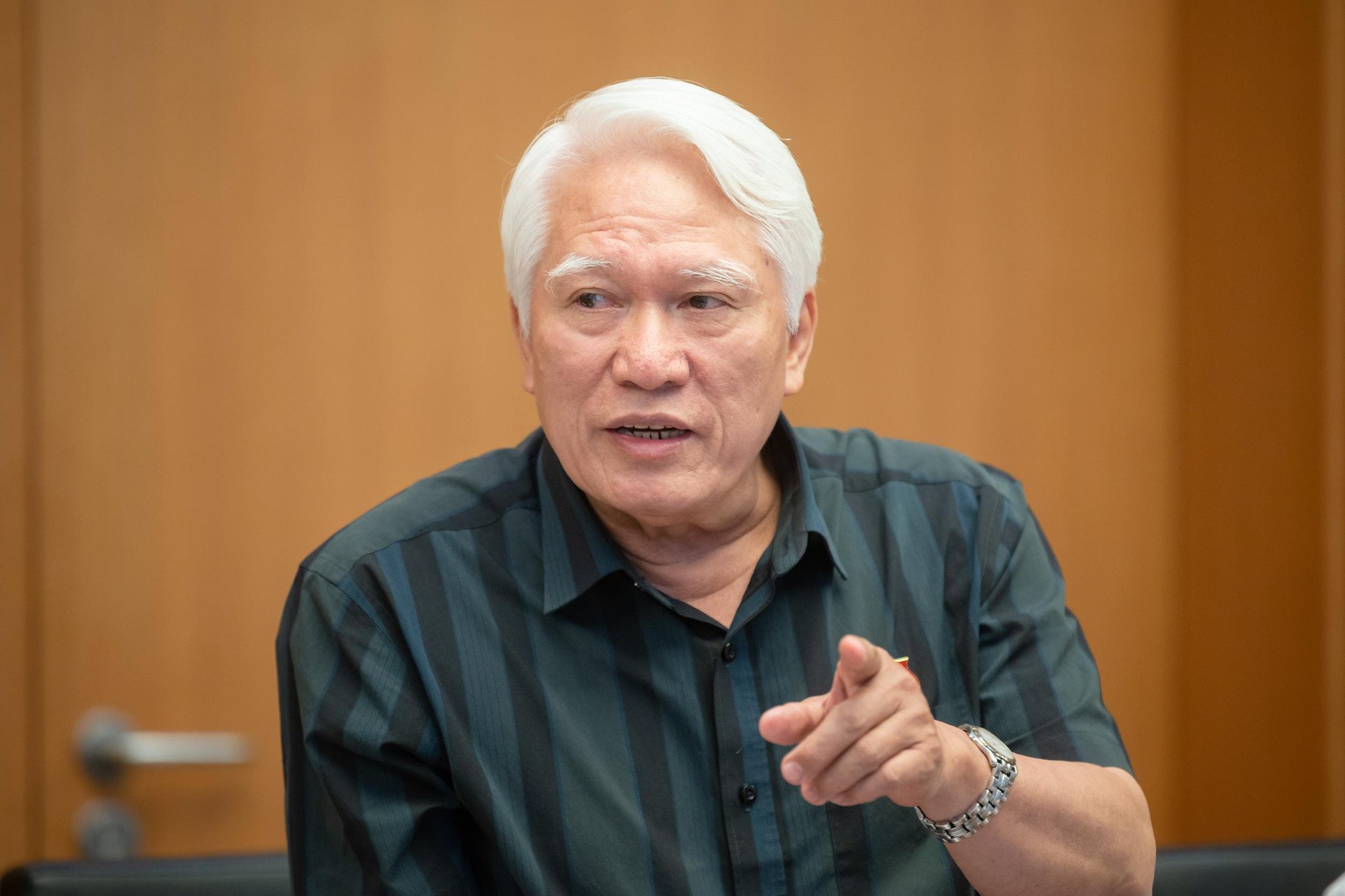
Agreeing with the above view, delegate Nguyen Chu Hoi, National Assembly Delegation of Hai Phong city, said that it is necessary to build an inter-sectoral coordination mechanism to manage river basins.
Delegate Nguyen Chu Hoi proposed: “The planning of river basin management by region and the need to establish a river basin coordination committee according to the inter-sectoral coordination mechanism. The principles should be stipulated in the Law, this is a very important issue to ensure water security, linked to ensuring national security in border areas”.
Clearly stipulate the mechanism for management and equitable and sustainable use of international water resources.
Delegate Le Hoai Trung, National Assembly Delegation of Thua Thien Hue province emphasized: The importance of fair and sustainable management and use of international water resources. However, the draft Law has not mentioned issues related to international treaties or international agreements regulating the responsibilities of countries in protecting international water resources.
Delegate Le Hoai Trung suggested that the draft Law needs further research to be compatible with the provisions of international treaties and international agreements, related to issues such as prior notification of water use, regulations on water quality and the number of countries participating in the organization, in order to have binding nature and responsibility of agencies related to transnational water resources management.
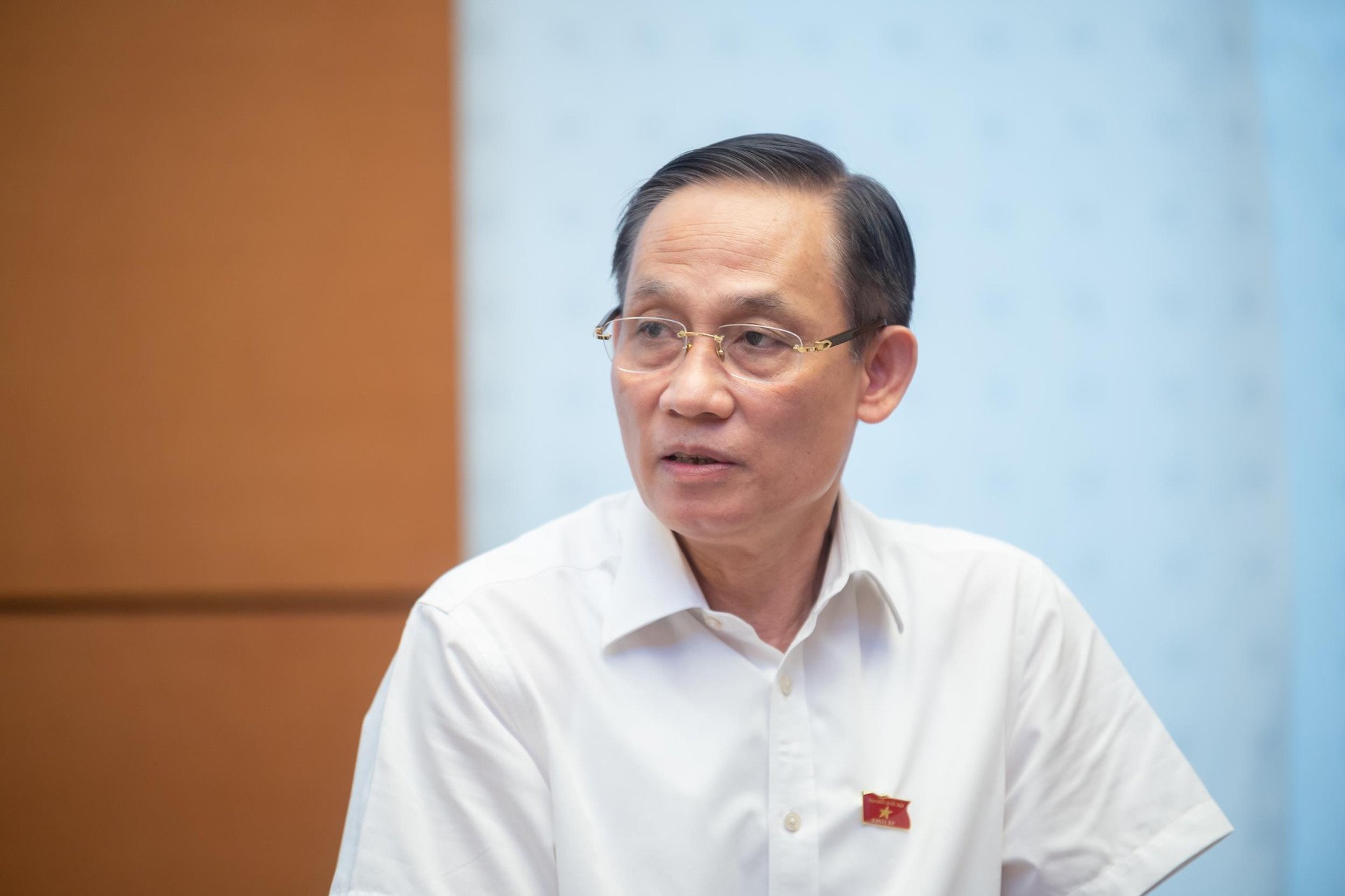
Delegates also agreed on the need to amend the Law on Water Resources this time to establish a legal corridor system for national water resources management on a digital technology platform and integrate regulations related to water resources management, exploitation, use and water supply in the Law on Water Resources. Continue to innovate mechanisms and policies towards socialization of the water sector. Ensure national water resources security, focus on prevention, control and restoration of degraded, depleted and polluted water sources; separate the unified comprehensive management of water resources from the management and operation of water exploitation and use works.
Delegates also agreed on developing water economy, considering water products as essential goods; ensuring fairness in access to water resources and following international trends but taking into account Vietnam's characteristics.
At the same time, the Law will be amended in the direction of integrating provisions related to water resources; assigning responsibilities to ministries and branches for management in accordance with the functions and tasks prescribed in relevant laws such as irrigation, hydropower, water supply, and waterway transport.
Some photos at the meeting:
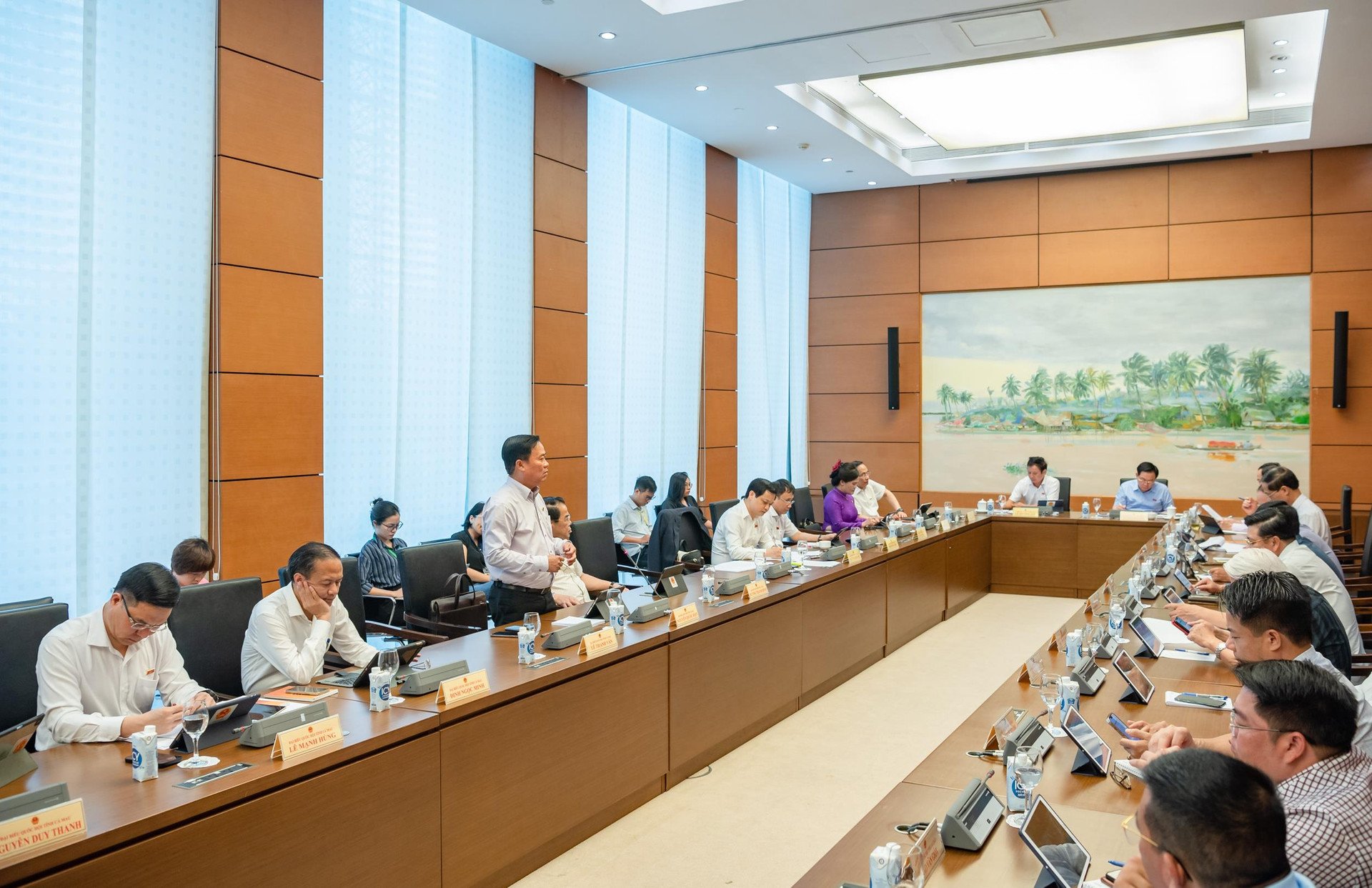
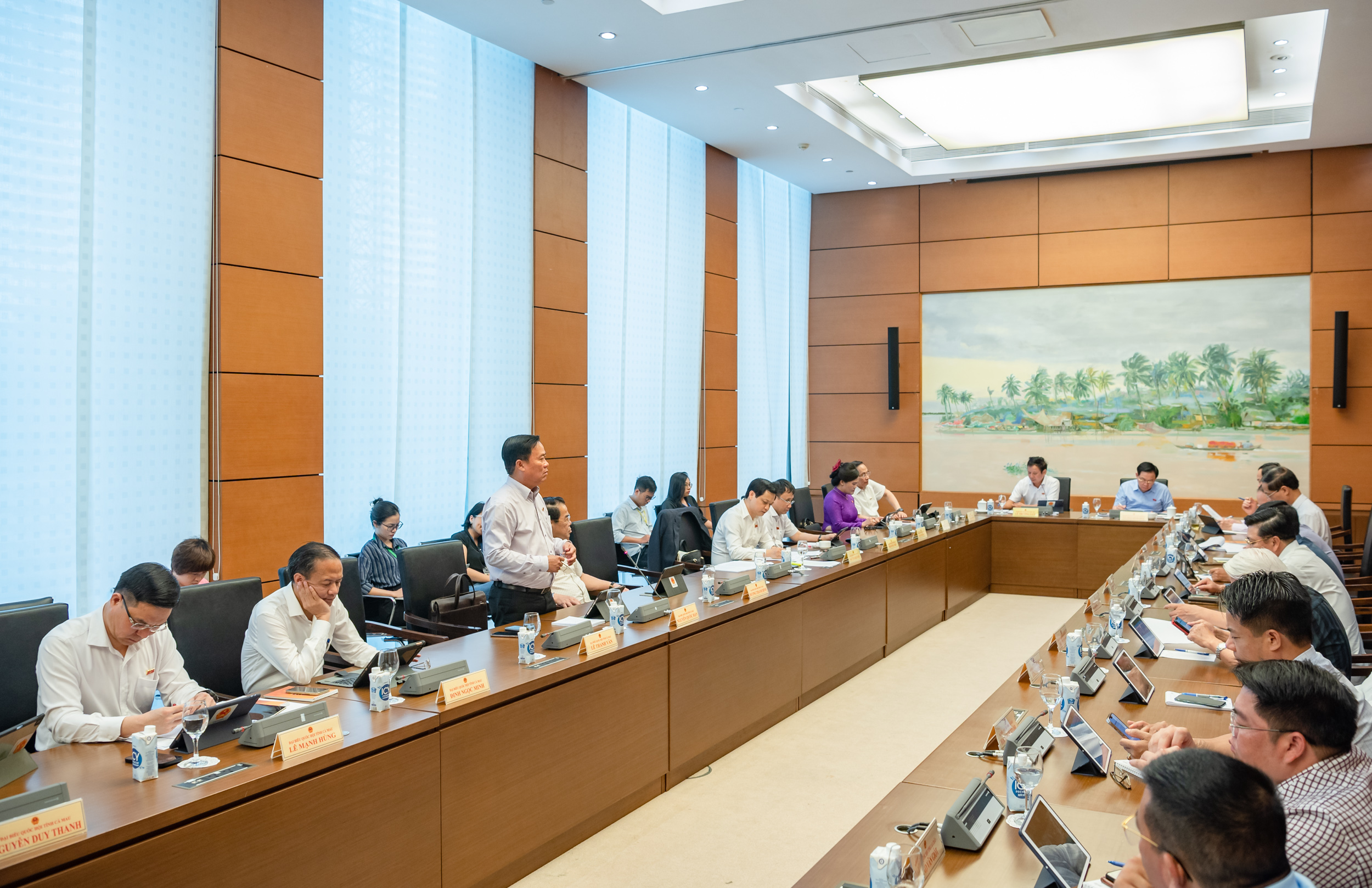
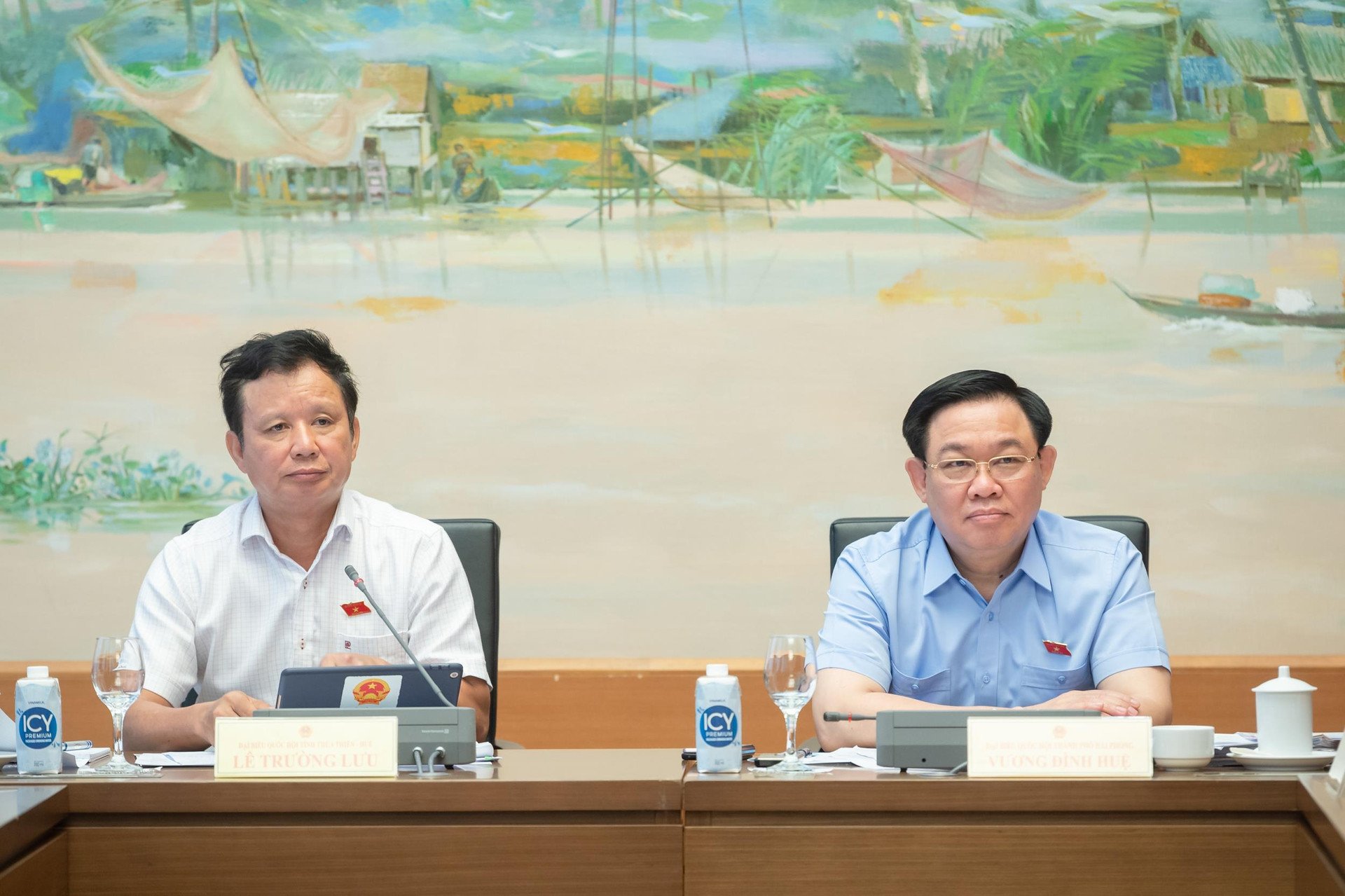
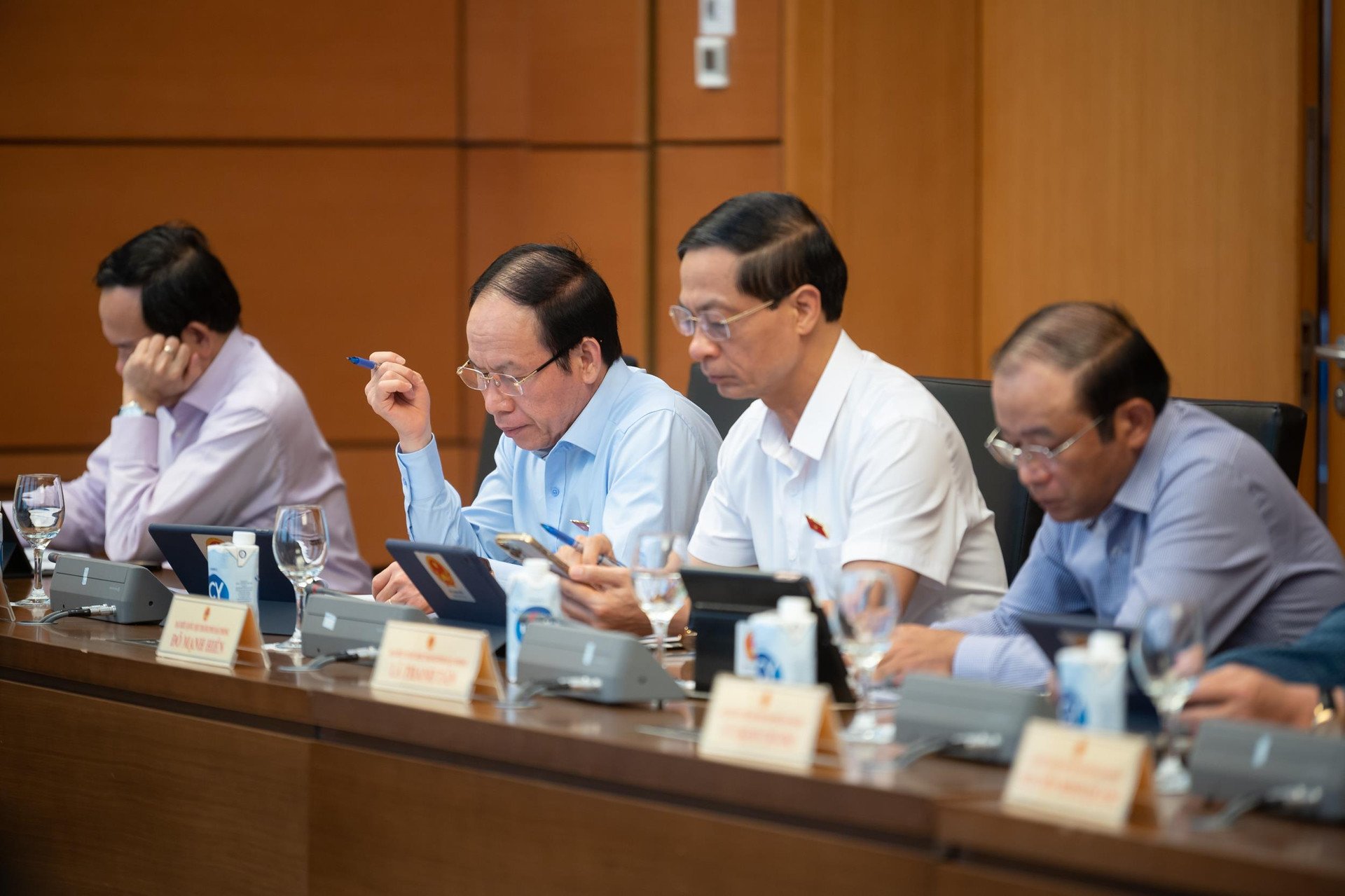
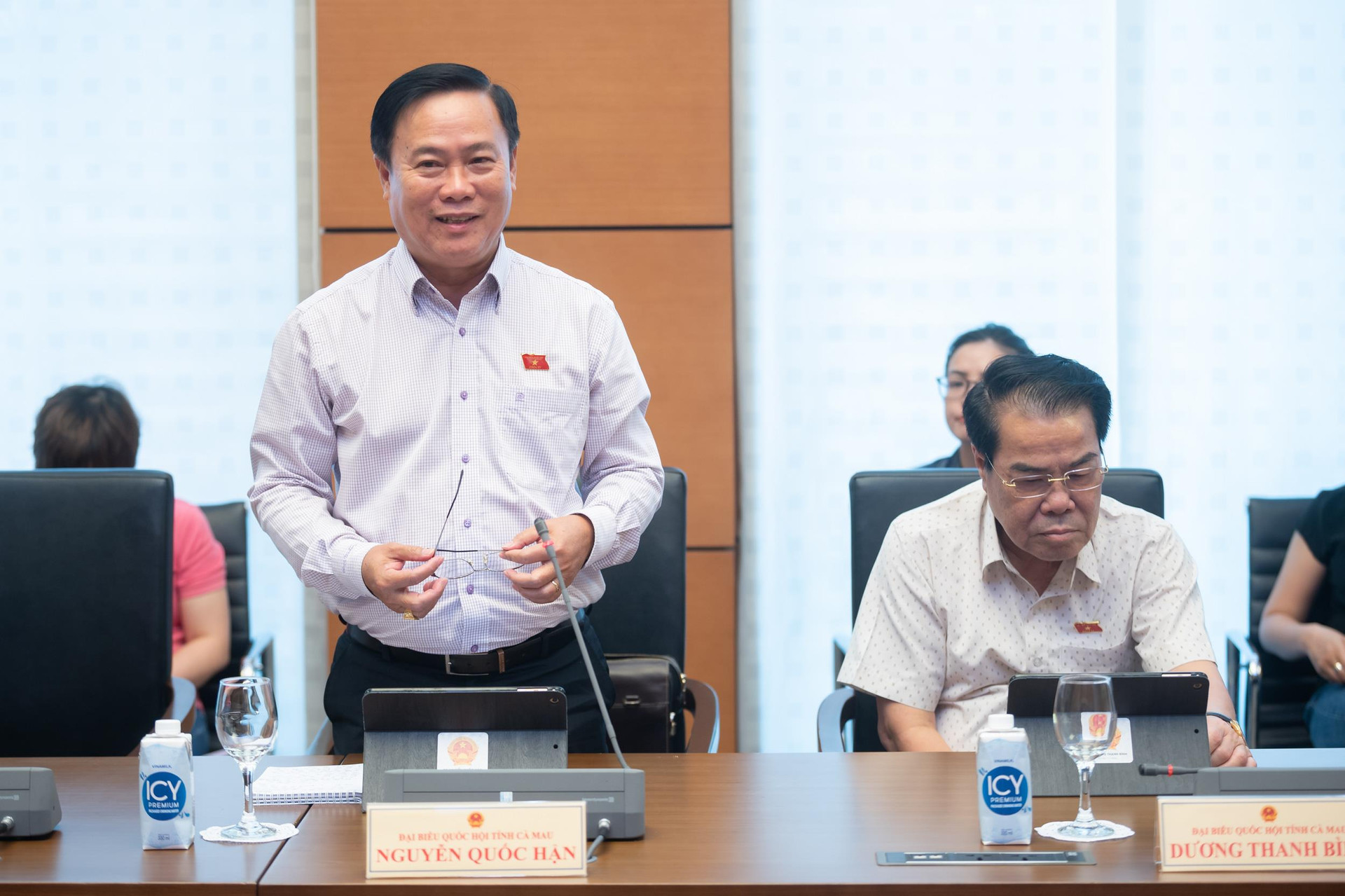
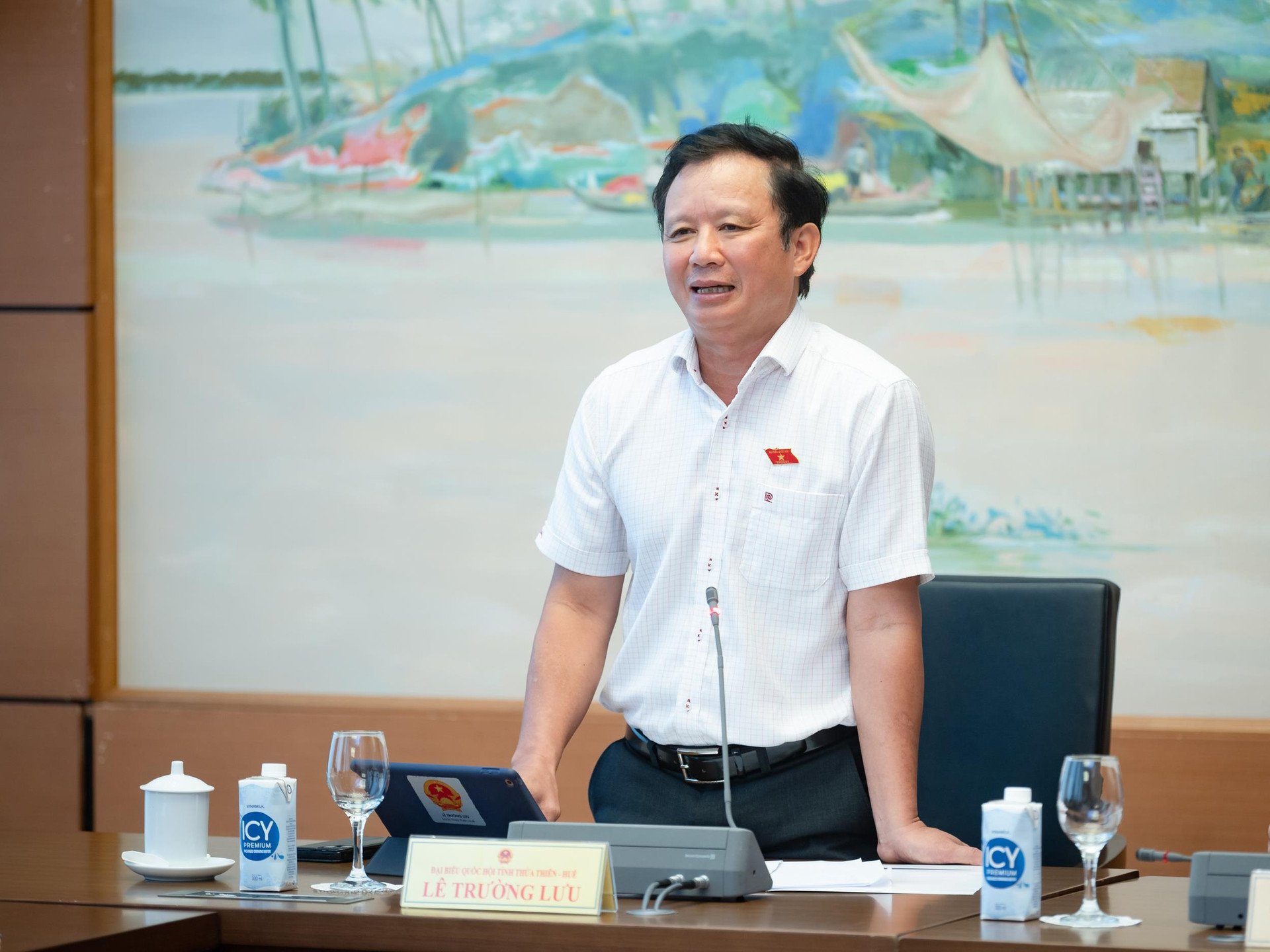
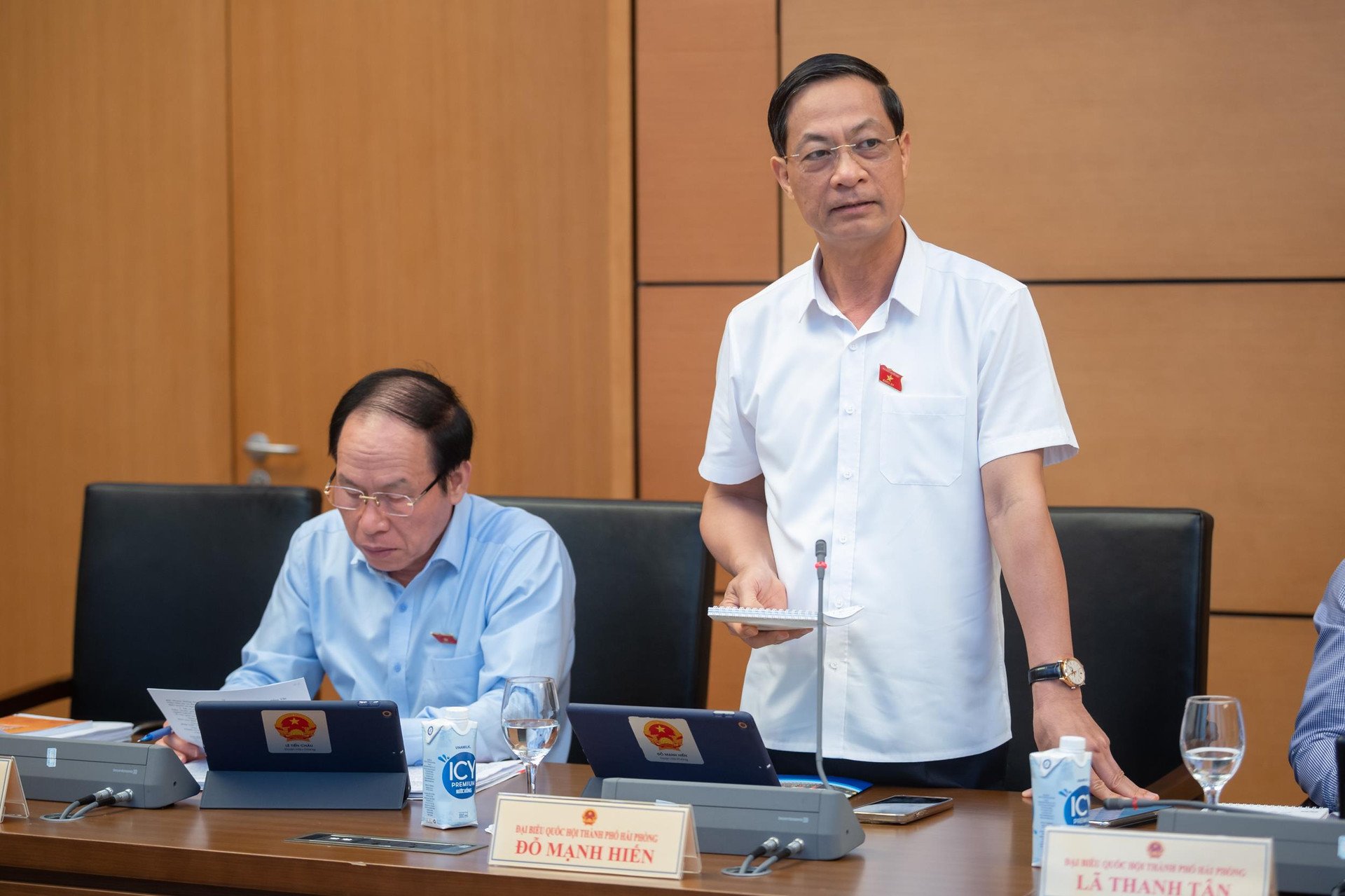
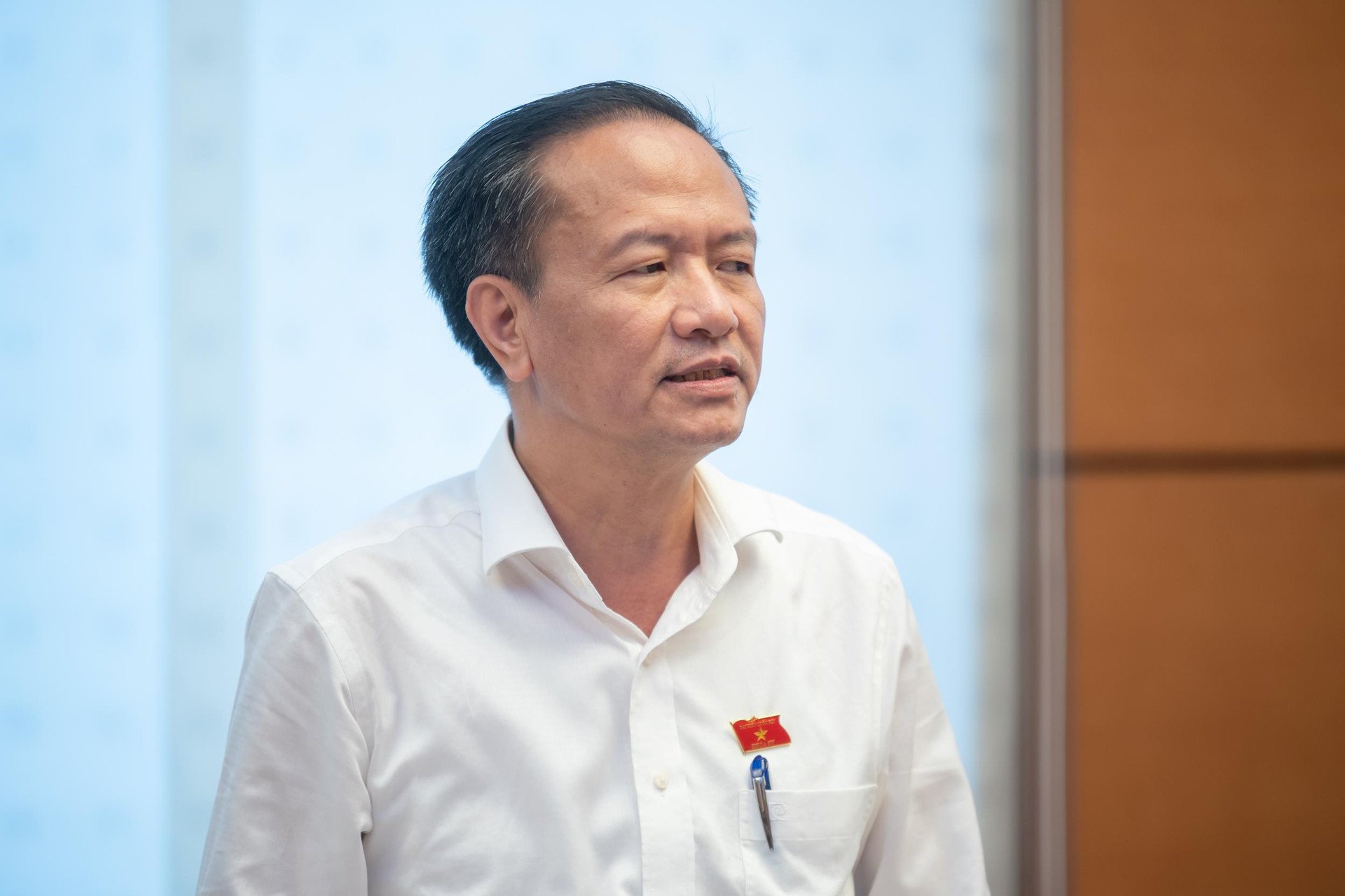
Source




![[Photo] Panorama of the 2025 Community Action Awards Final Round](https://vphoto.vietnam.vn/thumb/1200x675/vietnam/resource/IMAGE/2025/11/15/1763206932975_chi-7868-jpg.webp)

![[Photo] General Secretary To Lam receives Vice President of Luxshare-ICT Group (China)](https://vphoto.vietnam.vn/thumb/1200x675/vietnam/resource/IMAGE/2025/11/15/1763211137119_a1-bnd-7809-8939-jpg.webp)
![[Photo] Prime Minister Pham Minh Chinh meets with representatives of outstanding teachers](https://vphoto.vietnam.vn/thumb/1200x675/vietnam/resource/IMAGE/2025/11/15/1763215934276_dsc-0578-jpg.webp)
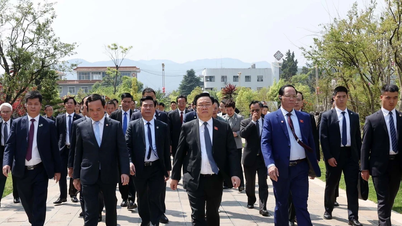

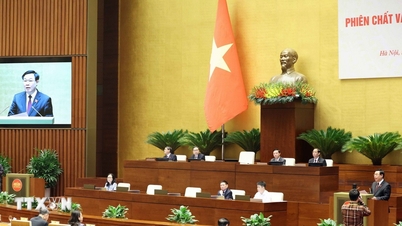


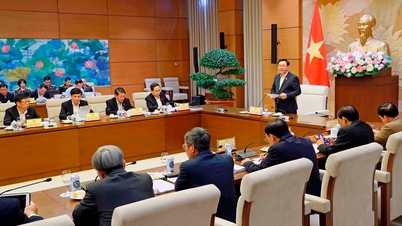
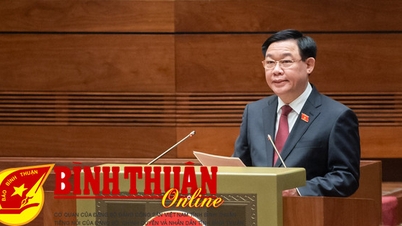
















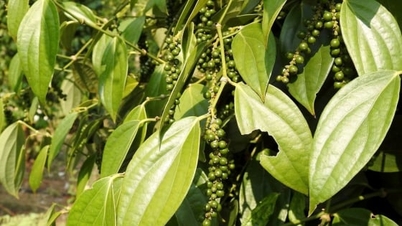

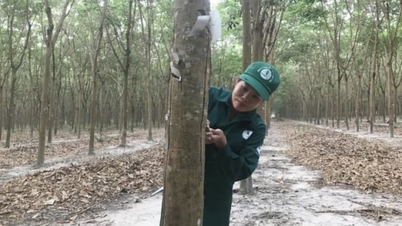
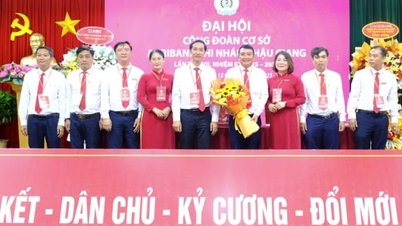



































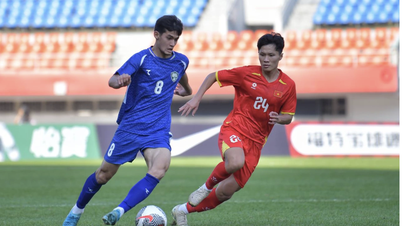





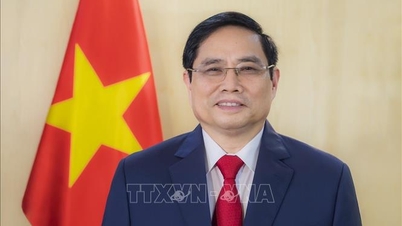
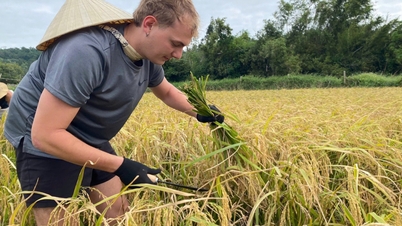





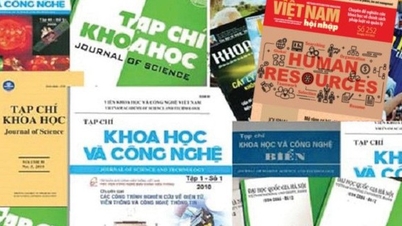
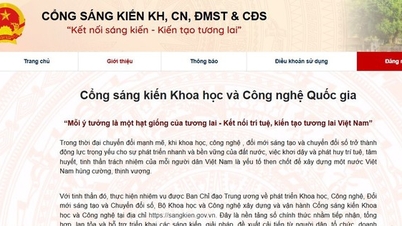




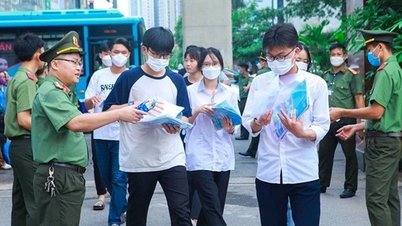











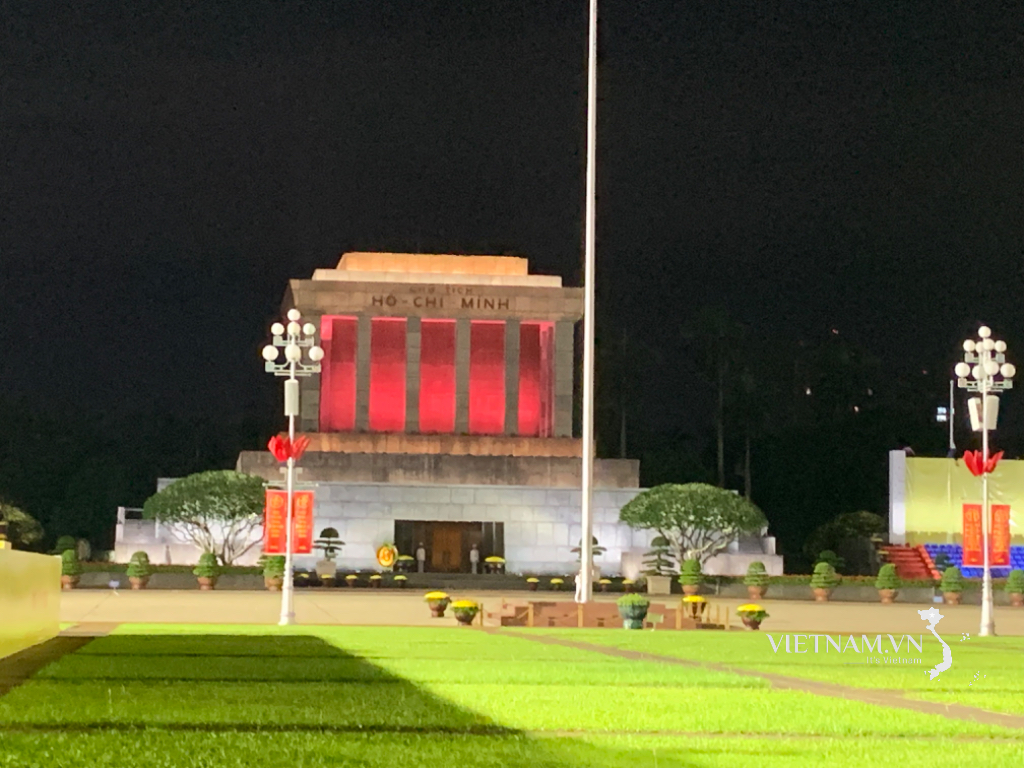

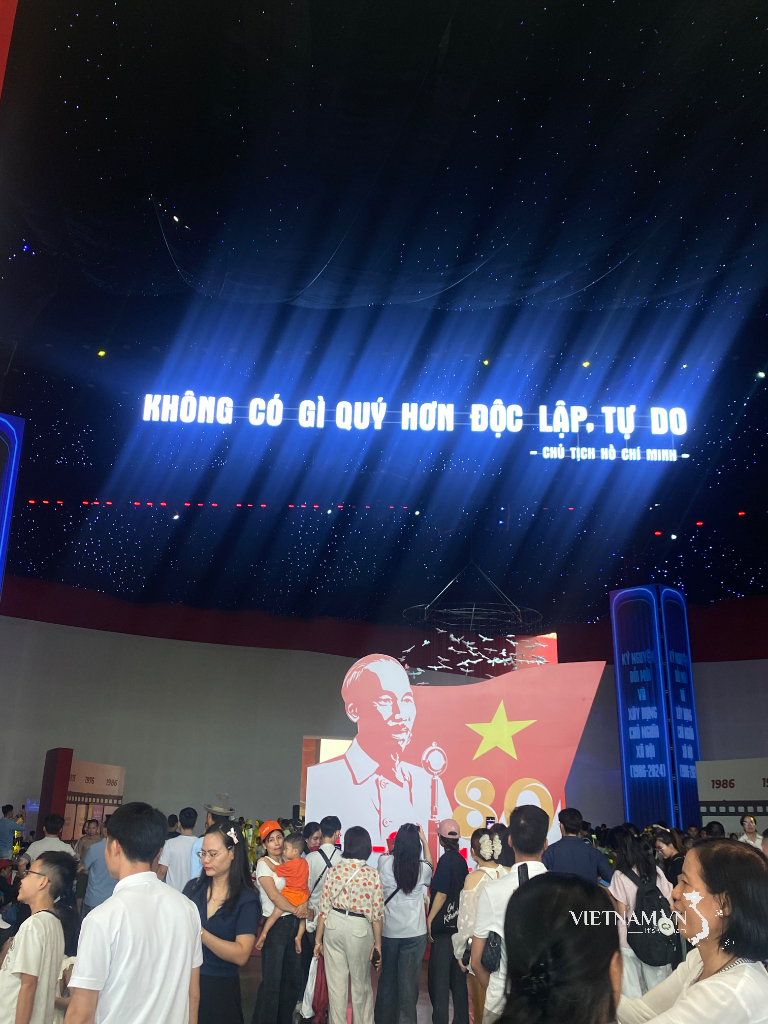

Comment (0)